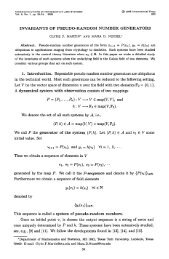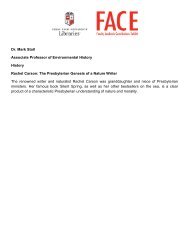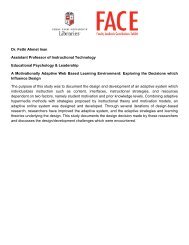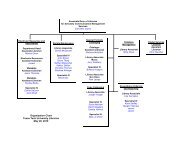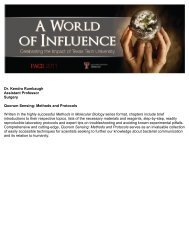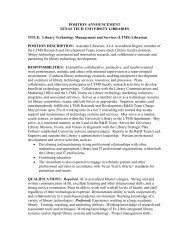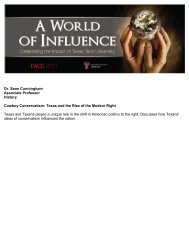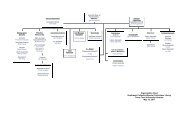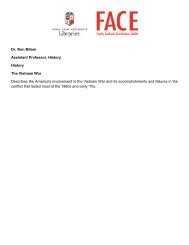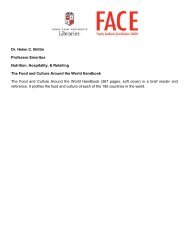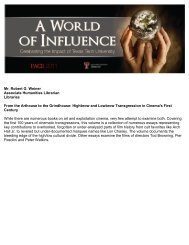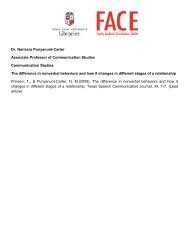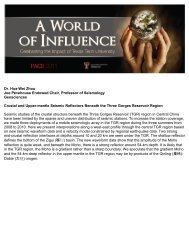Nonprofit Organizations Law and Policy Third Edition - Libraries ...
Nonprofit Organizations Law and Policy Third Edition - Libraries ...
Nonprofit Organizations Law and Policy Third Edition - Libraries ...
Create successful ePaper yourself
Turn your PDF publications into a flip-book with our unique Google optimized e-Paper software.
62 OVERVIEW OF THE NONPROFIT SECTOR eH.l<br />
purpose of being turned over to the foreign organization are held to be<br />
nondeductible.<br />
On the other h<strong>and</strong>, contributions received by the domestic organization<br />
described in the fourth example will not be earmarked in any<br />
manner, <strong>and</strong> use of such contributions will be subject to control by the<br />
domestic organization. Consequently, the domestic organization is considered<br />
to be the recipient of such contributions for purposes of applying<br />
section 170(c) of the Code. Similarly, the domestic organization described<br />
in the fifth example is considered to be the real beneficiary of contributions<br />
it receives for transmission to the foreign organization. Since the<br />
foreign organization is merely an administrative arm of the domestic<br />
organization, the fact that contributions are ultimately paid over to the<br />
foreign organization does not require a conclusion that the domestic<br />
organization is not the real recipient of those contributions. Accordingly,<br />
contributions by individuals to the domestic organizations described in the<br />
fourth <strong>and</strong> fifth examples are considered to be deductible.<br />
* * *<br />
REVENUE RULING 66-79<br />
1966-1 C.B. 48<br />
Contributions to a domestic charity described in section 170(c)(2) of<br />
the Internal Revenue Code of 1954 which are solicited for a specific project<br />
of a foreign charitable organization are deductible under section 170 of the<br />
Code where the domestic charity has reviewed <strong>and</strong> approved the project as<br />
being in furtherance of its own exempt purposes <strong>and</strong> has control <strong>and</strong><br />
discretion as to the use of the contributions. Revenue Ruling 63-252, C.B.<br />
1963-2, 101, amplified.<br />
The Internal Revenue Service has been requested to clarify Revenue<br />
Ruling 63-252, C.B. 1963-2, 101 with respect to the deductibility of<br />
contributions to a domestic charitable corporation which may solicit<br />
contributions for a specific project of a foreign charity in the manner<br />
presented below.<br />
X corporation is a domestic charitable organization formed under the<br />
nonprofit laws of the state of Y. It is exempt from Federal income tax as<br />
being organized <strong>and</strong> operated exclusively for charitable, educational, <strong>and</strong><br />
scientific purposes described in section 501(c)(3) of the Internal Revenue<br />
Code of 1954. Contributions to it are deductible since it is an organization<br />
described in section 170(c)(2) of the Code.<br />
The corporation's charter provides, in part, that in furtherance of its<br />
educational, scientific, <strong>and</strong> charitable purposes it shall have the power to<br />
receive <strong>and</strong> allocate contributions, within the discretion of the board of<br />
directors, to any organization organized <strong>and</strong> operated exclusively for<br />
charitable or educational purposes within the meaning of section 501(c)(3)<br />
of the Code.



